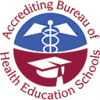Associate of Science in Health Care Administration
An aging Baby Boomer generation, along with the fact that more individuals are remaining active later in life, mean the health care industry is projected to see a growing need for medical services. As a result, there will also be an increased demand for additional health care workers and professionals, including health care administrators and managers who are tasked with organizing and managing medical information and health care staff.
The Associate of Science in Healthcare Administration degree program at Glendale Career College is tailored to enable students better understand the health care delivery system and can equip you with the necessary business, medical, and human resources skills to begin or further your administrative career in the health care field.

Associate of Science in Health Care Administration
Associate of Science in Health Care Administration Overview
The Associate of Science degree in Health Care Administration program equips students with the skills necessary for entry-level employment in a health care administration setting. This program is tailored for individuals who hope to work in the allied health industry.
The Associate of Science in Healthcare Administration program at Glendale Career College equips students with the knowledge and training they need to start working in a health care or medical office, including medical clinics, doctors’ offices, HMOs, rehabilitation centers, hospitals and other health care facilities.
*Glendale Career College is not able to guarantee employment.
*Source: http://www.bls.gov/ooh/management/medical-and-health-services-managers.htm.
For more information, including median wages and the job outlook for Medical Assistants in California, see the California Occupational Guide published by the State of California Employment Development Department. For the most up to date national information, please visit the U.S. Bureau of Labor Statistics.
Proudly accredited, licensed to operate and/or recognized by the following institutions:



The Associate of Science in Health Care Administration program can be taken at the following campuses:
Meet a Graduate
Questions?
Let us help you launch your career by contacting us today. Simply fill out our contact form or call us at 800-639-3384.
Classes are starting soon!
Associate of Science in Health Care Administration Careers & Work Environment
Students gain a deeper understanding of health care finance, human resources, health care administration, reimbursement systems and health care records, along with the regulatory, ethical, and legal issues impacting health care organizations. Successful graduates of the program can seek promotions at a higher level of employment within organizations.
More information, including median wages and the job outlook for Health Care Administrators in California can be found in the California Occupational Guide published by the State of California Employment Development Department. For the most up to date national information, please visit the U.S. Bureau of Labor Statistics.

Associate of Science in Health Care Administration Course Material
The Associate of Science degree in Health Care Administration program equips graduates with the knowledge and skills needed for entry-level employment in a health care administration setting. This program is tailored for students who hope to work in the allied health industry.
Introduction to Health Care Administration
This course introduces the student to the overall subject matter of Health Care Administration. It also offers a comparison of health care systems around the world and covers legal and business issues in health care, financial management, different settings in the health care environment, facility design, quality and patient safety, and how to organize the doctors’ practice. The curriculum also includes team member motivation and conflict management, leadership, human resources management, and communication. Outside preparation and study time, in addition to regular classroom activities, is necessary to finish the class assignments. The type of outside preparation may include homework assignments, projects, reading, and required studying.
Global Health Care Environment
This course gives students a deeper understanding of global health problems, along with the role of international health agencies and different types of major health care systems around the world. Students will also dive into the health care administrative/management role and its impact on these health care systems. Outside preparation and study time, in addition to regular classroom activities, is necessary to finish the class assignments. The type of outside preparation may include homework assignments, projects, reading, and required studying.
Administrative Technology Skills
Individuals in administrative positions, whether in a supervisory role or otherwise, are often tasked with preparing and presenting reports, maintaining logs, and tracking employee or patient data. Students must have the software and technology skills to prepare these required documents in today’s technological atmosphere. This course delves into Access, PowerPoint, and Excel, offering a hands-on, practical approach to completing projects customized to the student’s particular field. Outside preparation and study time, in addition to regular classroom activities, is necessary to finish the class assignments. The type of outside preparation may include homework assignments, projects, reading, and required studying.
Administrative Office Skills
This course includes a comprehensive introduction to administrative office management, zeroing in on office managers’ day-to-day responsibilities, along with the skills needed for the role, including dealing with organizational issues, evaluating employees, communication, office environment, supervision, motivation, equipment and furniture, salaries, productivity, telecommunications, applications software, records management, quality and quantity control, and budgetary and cost control. Outside preparation and study time, in addition to regular classroom activities, is necessary to finish the class assignments. The type of outside preparation may include homework assignments, projects, reading, and required studying.
Professionalism in Health Care Careers
Tailored for students in any health care field, this course covers how to present a professional image and be successful in their chosen career. This course will increase the student’s ability to be hired in an administrative/supervisory position by equipping them with the “soft skill” tools needed to work in a professional, ethical, legal, and competent manner. Outside preparation and study time, in addition to regular classroom activities, is necessary to finish the class assignments. The type of outside preparation may include homework assignments, projects, reading, and required studying.
Body Function and Terminology
This introductory course covers the principles and facts of human physiology for the health care professional. Students will also receive an advanced offering of medical terminology, providing both clinical and administrative office examples and cases in a realistic context to introduce terms and definitions. Outside preparation and study time, in addition to regular classroom activities, is necessary to finish the class assignments. The type of outside preparation may include homework assignments, projects, reading, and required studying.
Medical Ethics
This course presents the health care professional with analytical and responsible decision-making skills, using ethical issues prevalent in health care settings. Outside preparation and study time, in addition to regular classroom activities, is necessary to finish the class assignments. The type of outside preparation may include homework assignments, projects, reading, and required studying.
Office Case Study
In this course, the student must analyze and research an issue or concern seen in their extern/clinical office or place of employment, and provide a complete plan detailing how to resolve this complexity, drawing upon knowledge acquired throughout their entire program of study as well as their extern/clinical and/or employment experience. The student will be required to provide a public presentation of their issue, findings, and resolution to the issue. Preparation and presentation will include a “thesis” style, APA-formatted paper and PowerPoint presentation. Outside preparation and study time, in addition to regular classroom activities, is necessary to finish the class assignments. The type of outside preparation may include homework assignments, projects, reading, and required studying.
Information System for Health Care
The Health Care Information Technology course is designed to provide students with the knowledge they need to successfully navigate Information Systems in the Health Care Setting. The course offers an overview of Information Technology, Health Care Information Technology leadership roles, strategic planning, hardware, software, and communications. Students will also cover how to utilize electronic health records, patient scheduling, and office automations. Outside preparation and study time, in addition to regular classroom activities, is necessary to finish the class assignments. The type of outside preparation may include homework assignments, projects, reading, and required studying.
Legal Aspects of Health Administration
In this course, students receive an overview of health law issues and government regulation, including legal constraints, liability, negligence, patient rights, confidentiality, and corporate/administrative responsibility. This course also emphasizes business applications of health law. Outside preparation and study time, in addition to regular classroom activities, is necessary to finish class assignments. The type of outside preparation may include homework assignments, projects, reading, and required studying.
Marketing for Health Services Organizations
This course is tailored to increase students’ competencies in business skills. Along with the development of marketing strategies and analyses in a health care setting, the course also covers the design of services, including pricing, communication, distribution channels, and client motivation and services. Outside preparation and study time, in addition to regular classroom activities, is necessary to finish class assignments. The type of outside preparation may include homework assignments, projects, reading, and required studying.
Leadership in Health Care Administration
This course dives into micro and macro organizational behavior theories, which provide the theoretical foundation for the critical study of effective leadership within organizations. Students will have the opportunity to explore the processes of communication, problem solving, critical thinking, conflict management, change management and decision making at an individual, group, and organizational level. The course emphasizes how important it is for leaders to understand and properly manage people. It also covers different models of leadership along with leadership competencies. Globalization, diversity leadership, governance and cultural diversity will also be examined. In addition, students will be able to reflect upon and evaluate their own leadership abilities, competencies, personal values, and interpersonal and communication skills. Outside preparation and study time, in addition to regular classroom activities, is necessary to finish the class assignments. The type of outside preparation may include homework assignments, projects, reading, and required studying.
Interpersonal Relations
This course offers skills and tools needed for health care career students to communicate with patients, peers, superiors, and/or subordinates. It also explores grief and loss, developmental milestones, addiction, professional ethics and law, and examines the idea of health care personnel as counselors and educators. Students will discuss tools for observing others, listening, sending and receiving accurate messages, the influence of culture’s role in health and healing, and theories of human understanding. Outside preparation and study time, in addition to regular classroom activities, is necessary to finish the class assignments. The type of outside preparation may include homework assignments, projects, reading, and required studying.
Quantitative Principles
This course offers an overview of mathematics relating to business, economics, life sciences and social sciences. Students with different levels of mathematical experience will receive an overview of all areas of mathematics, including elementary functions, finite mathematics, and some calculus. Outside preparation and study time, in addition to regular classroom activities, is necessary to finish the class assignments. The type of outside preparation may include homework assignments, projects, reading, and required studying.
College English
In this course, students hone in on writing by focusing on the composing process, which includes the exploration of ideas through reading, methods of writing development, and use of writing conventions. Outside preparation and study time, in addition to regular classroom activities, is necessary to finish the class assignments. The type of outside preparation may include homework assignments, projects, reading, and required studying.
Associate of Science in Health Care Administration Course Activities
Health Care Administrators sort and manage health information data and make sure it is accessible, accurate, and also secure in both paper files and electronic systems. They use a number of different classification systems to code and categorize patient information for insurance reimbursement, for databases and registries, and to maintain patients’ medical and treatment histories.

Request Information
Fill out a short form online and one of our admissions representatives will contact you to answer any questions you have.
Apply Online Now!
Ready to make your decision now? You can apply now online in under a few minutes.
Schedule a Tour
Come and see us in person! Talk to your future instructors, meet your future classmates and get familiar with your new home.


Associate of Science in Health Care Administration Overview
The Associate of Science degree in Health Care Administration program equips students with the skills necessary for entry-level employment in a health care administration setting. This program is tailored for individuals who hope to work in the allied health industry.
The Associate of Science in Healthcare Administration program at Glendale Career College equips students with the knowledge and training they need to start working in a health care or medical office, including medical clinics, doctors’ offices, HMOs, rehabilitation centers, hospitals and other health care facilities.
*Glendale Career College is not able to guarantee employment.
*Source: http://www.bls.gov/ooh/management/medical-and-health-services-managers.htm.
For more information, including median wages and the job outlook for Medical Assistants in California, see the California Occupational Guide published by the State of California Employment Development Department. For the most up to date national information, please visit the U.S. Bureau of Labor Statistics.
Proudly accredited, licensed to operate and/or recognized by the following institutions:



The Associate of Science in Health Care Administration program can be taken at the following campuses:
Meet a Graduate
Questions?
Let us help you launch your career by contacting us today. Simply fill out our contact form or call us at 800-639-3384.
Classes are starting soon!
Associate of Science in Health Care Administration Careers & Work Environment
Students gain a deeper understanding of health care finance, human resources, health care administration, reimbursement systems and health care records, along with the regulatory, ethical, and legal issues impacting health care organizations. Successful graduates of the program can seek promotions at a higher level of employment within organizations.
More information, including median wages and the job outlook for Health Care Administrators in California can be found in the California Occupational Guide published by the State of California Employment Development Department. For the most up to date national information, please visit the U.S. Bureau of Labor Statistics.

Associate of Science in Health Care Administration Course Material
The Associate of Science degree in Health Care Administration program equips graduates with the knowledge and skills needed for entry-level employment in a health care administration setting. This program is tailored for students who hope to work in the allied health industry.
Introduction to Health Care Administration
This course introduces the student to the overall subject matter of Health Care Administration. It also offers a comparison of health care systems around the world and covers legal and business issues in health care, financial management, different settings in the health care environment, facility design, quality and patient safety, and how to organize the doctors’ practice. The curriculum also includes team member motivation and conflict management, leadership, human resources management, and communication. Outside preparation and study time, in addition to regular classroom activities, is necessary to finish the class assignments. The type of outside preparation may include homework assignments, projects, reading, and required studying.
Global Health Care Environment
This course gives students a deeper understanding of global health problems, along with the role of international health agencies and different types of major health care systems around the world. Students will also dive into the health care administrative/management role and its impact on these health care systems. Outside preparation and study time, in addition to regular classroom activities, is necessary to finish the class assignments. The type of outside preparation may include homework assignments, projects, reading, and required studying.
Administrative Technology Skills
Individuals in administrative positions, whether in a supervisory role or otherwise, are often tasked with preparing and presenting reports, maintaining logs, and tracking employee or patient data. Students must have the software and technology skills to prepare these required documents in today’s technological atmosphere. This course delves into Access, PowerPoint, and Excel, offering a hands-on, practical approach to completing projects customized to the student’s particular field. Outside preparation and study time, in addition to regular classroom activities, is necessary to finish the class assignments. The type of outside preparation may include homework assignments, projects, reading, and required studying.
Administrative Office Skills
This course includes a comprehensive introduction to administrative office management, zeroing in on office managers’ day-to-day responsibilities, along with the skills needed for the role, including dealing with organizational issues, evaluating employees, communication, office environment, supervision, motivation, equipment and furniture, salaries, productivity, telecommunications, applications software, records management, quality and quantity control, and budgetary and cost control. Outside preparation and study time, in addition to regular classroom activities, is necessary to finish the class assignments. The type of outside preparation may include homework assignments, projects, reading, and required studying.
Professionalism in Health Care Careers
Tailored for students in any health care field, this course covers how to present a professional image and be successful in their chosen career. This course will increase the student’s ability to be hired in an administrative/supervisory position by equipping them with the “soft skill” tools needed to work in a professional, ethical, legal, and competent manner. Outside preparation and study time, in addition to regular classroom activities, is necessary to finish the class assignments. The type of outside preparation may include homework assignments, projects, reading, and required studying.
Body Function and Terminology
This introductory course covers the principles and facts of human physiology for the health care professional. Students will also receive an advanced offering of medical terminology, providing both clinical and administrative office examples and cases in a realistic context to introduce terms and definitions. Outside preparation and study time, in addition to regular classroom activities, is necessary to finish the class assignments. The type of outside preparation may include homework assignments, projects, reading, and required studying.
Medical Ethics
This course presents the health care professional with analytical and responsible decision-making skills, using ethical issues prevalent in health care settings. Outside preparation and study time, in addition to regular classroom activities, is necessary to finish the class assignments. The type of outside preparation may include homework assignments, projects, reading, and required studying.
Office Case Study
In this course, the student must analyze and research an issue or concern seen in their extern/clinical office or place of employment, and provide a complete plan detailing how to resolve this complexity, drawing upon knowledge acquired throughout their entire program of study as well as their extern/clinical and/or employment experience. The student will be required to provide a public presentation of their issue, findings, and resolution to the issue. Preparation and presentation will include a “thesis” style, APA-formatted paper and PowerPoint presentation. Outside preparation and study time, in addition to regular classroom activities, is necessary to finish the class assignments. The type of outside preparation may include homework assignments, projects, reading, and required studying.
Information System for Health Care
The Health Care Information Technology course is designed to provide students with the knowledge they need to successfully navigate Information Systems in the Health Care Setting. The course offers an overview of Information Technology, Health Care Information Technology leadership roles, strategic planning, hardware, software, and communications. Students will also cover how to utilize electronic health records, patient scheduling, and office automations. Outside preparation and study time, in addition to regular classroom activities, is necessary to finish the class assignments. The type of outside preparation may include homework assignments, projects, reading, and required studying.
Legal Aspects of Health Administration
In this course, students receive an overview of health law issues and government regulation, including legal constraints, liability, negligence, patient rights, confidentiality, and corporate/administrative responsibility. This course also emphasizes business applications of health law. Outside preparation and study time, in addition to regular classroom activities, is necessary to finish class assignments. The type of outside preparation may include homework assignments, projects, reading, and required studying.
Marketing for Health Services Organizations
This course is tailored to increase students’ competencies in business skills. Along with the development of marketing strategies and analyses in a health care setting, the course also covers the design of services, including pricing, communication, distribution channels, and client motivation and services. Outside preparation and study time, in addition to regular classroom activities, is necessary to finish class assignments. The type of outside preparation may include homework assignments, projects, reading, and required studying.
Leadership in Health Care Administration
This course dives into micro and macro organizational behavior theories, which provide the theoretical foundation for the critical study of effective leadership within organizations. Students will have the opportunity to explore the processes of communication, problem solving, critical thinking, conflict management, change management and decision making at an individual, group, and organizational level. The course emphasizes how important it is for leaders to understand and properly manage people. It also covers different models of leadership along with leadership competencies. Globalization, diversity leadership, governance and cultural diversity will also be examined. In addition, students will be able to reflect upon and evaluate their own leadership abilities, competencies, personal values, and interpersonal and communication skills. Outside preparation and study time, in addition to regular classroom activities, is necessary to finish the class assignments. The type of outside preparation may include homework assignments, projects, reading, and required studying.
Interpersonal Relations
This course offers skills and tools needed for health care career students to communicate with patients, peers, superiors, and/or subordinates. It also explores grief and loss, developmental milestones, addiction, professional ethics and law, and examines the idea of health care personnel as counselors and educators. Students will discuss tools for observing others, listening, sending and receiving accurate messages, the influence of culture’s role in health and healing, and theories of human understanding. Outside preparation and study time, in addition to regular classroom activities, is necessary to finish the class assignments. The type of outside preparation may include homework assignments, projects, reading, and required studying.
Quantitative Principles
This course offers an overview of mathematics relating to business, economics, life sciences and social sciences. Students with different levels of mathematical experience will receive an overview of all areas of mathematics, including elementary functions, finite mathematics, and some calculus. Outside preparation and study time, in addition to regular classroom activities, is necessary to finish the class assignments. The type of outside preparation may include homework assignments, projects, reading, and required studying.
College English
In this course, students hone in on writing by focusing on the composing process, which includes the exploration of ideas through reading, methods of writing development, and use of writing conventions. Outside preparation and study time, in addition to regular classroom activities, is necessary to finish the class assignments. The type of outside preparation may include homework assignments, projects, reading, and required studying.
Associate of Science in Health Care Administration Course Activities
Health Care Administrators sort and manage health information data and make sure it is accessible, accurate, and also secure in both paper files and electronic systems. They use a number of different classification systems to code and categorize patient information for insurance reimbursement, for databases and registries, and to maintain patients’ medical and treatment histories.

